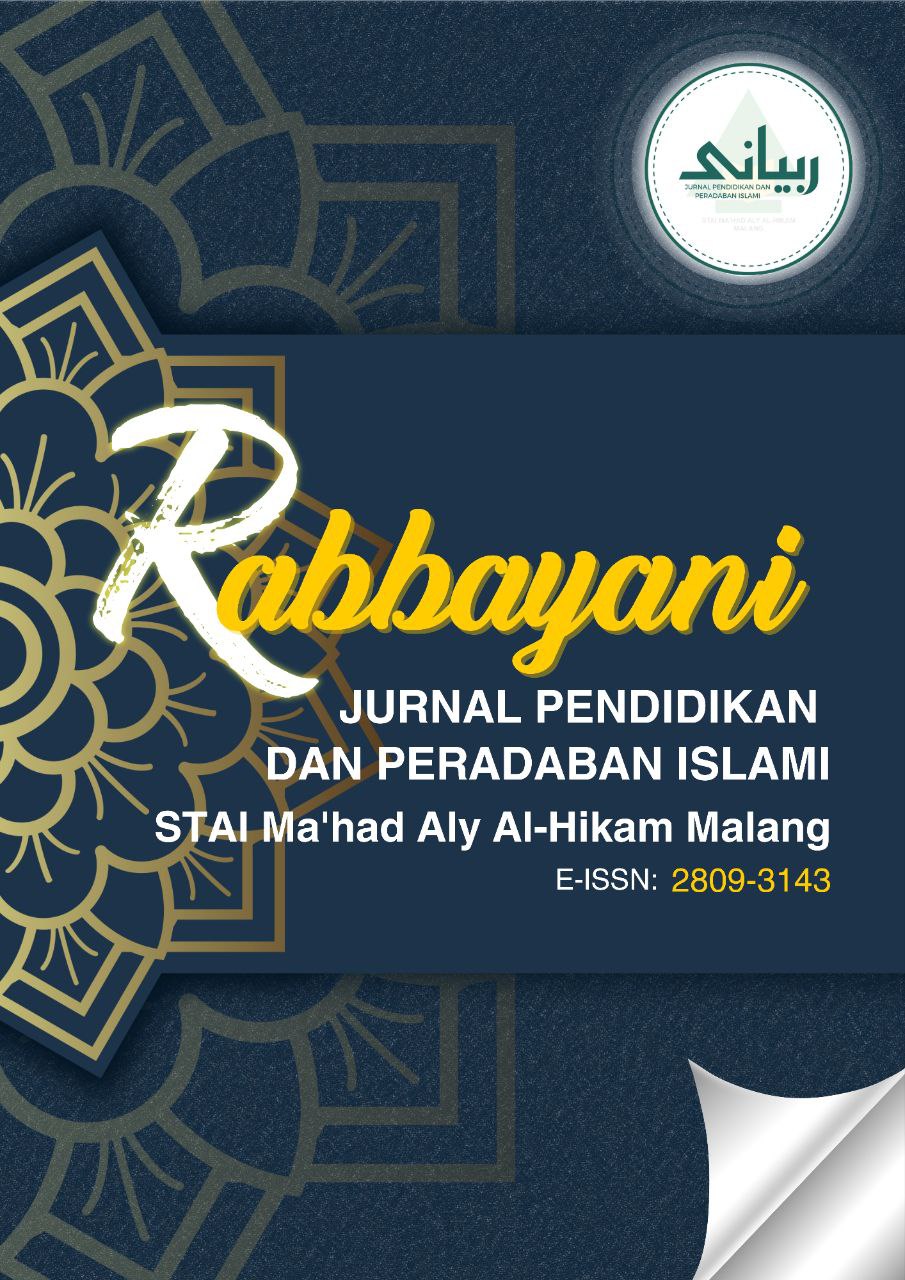Problematika Pendidikan Islam Anak Usia Dini
DOI:
https://doi.org/10.32478/em6vwd29Keywords:
Islamic Education, Early Childhood, Methods.Abstract
Early childhood aged 0-6 years have a complex and very unique phase of growth and development. Its growth and development has developed very rapidly and cannot be repeated in the future. At an early age it is also said that the golden age, where children at an early age can easily imitate and absorb various knowledge in their environment, both positive and negative, so that at an early age it is very good to be given positive knowledge. The aim of the research is to understand the Islamic problems of early childhood in learning at school. This research uses a qualitative method with a library research approach or literature research, with data collection tools in the form of primary data and secondary data such as observation of problematic books on the development of early childhood education and secondary data supporting data that is relevant to this research, such as books, magazines, documents and journal articles about research directly. The technical analysis of this research is in the form of content analysis techniques or content analysis. Based on the research results, it shows that ways to deal with the problems of early childhood Islamic education in learning include 1) learning methods & strategies, infrastructure, learning media, 3) teacher competency.
Downloads
References
A. Murti, Mendirikan dan Mengelolah PAUD: Manajemen
Akbar, T. S. (2015). Manusia dan Pendidikan Menurut Pemikiran Ibn Khaldun dan John Dewey. JURNAL ILMIAH DIDAKTIKA: Media Ilmiah Pendidikan dan Pengajaran, 15(2), 222-243.
Bunyamin, B. (2018). Konsep pendidikan akhlak menurut Ibn Miskawaih dan Aristoteles (Studi Komparatif). Jurnal Pendidikan Islam, 9(2), 127-142.
Hamim, N. (2014). Pendidikan Akhlak: Komparasi Konsep Pendidikan Ibnu Miskawaih dan Al-Ghazali. Ulumuna, 18(1), 21-40.
Hastiana, D., & Daliman, D. (2023). Perkembangan Kognitif Usia Pra Operasional dalam Berbagai Perspektif Permainan Tradisional. JIIP-Jurnal Ilmiah Ilmu Pendidikan, 6(6), 4136-4141.
Kartini Kartono, Psikologi Anak (Psikologi Perkembangan), (Bandung: Mandar Maju, 2007), h. 107.
Khomaeny, Elfan Fanhas Fatwa dan Hudha , Nandhini Anggarasari. Introducing the Creator To The Early Childhood. Proceeding The 1st International Conference on Education, Universitas Pendidikan Indonesia Kampus Tasikmalaya, December 21-22, 2017 ISBN. 978-602-60624-2-0.
Mansur. 2005. Pendidikan Anak Usia Dini Dalam Islam, (Yogyakarta: Pustaka Pelajar).
Muhaimin, Arah Baru Pengembangan Pendidikan Islam, Pemberdayaan, Pengembangan Kurikulum hingga Redefinisi Islamisasi Pengetahuan, Bandung: Nuansa, 2003.
Muhaimin, Pengembangan Kurikulum Pendidikan Agama Islam, Jakarta: Raja Grafindo Persada, 2007.
Muhaimin, et.al, Paradigma Pendidikan Islam, Bandung: Remaja Rosdakarya, 2001.
Mulyati, M. (2019). Menciptakan pembelajaran menyenangkan dalam menumbuhkan peminatan anak usia dini terhadap pelajaran. Alim, 1(2), 277-294.
Musyafa’Fathoni, A. B. (2010). Idealisme pendidikan Plato. Tadris STAIN Pamekasan, 5 no. 1.
Nata, H. A. (2016). Pendidikan dalam perspektif Al-Qur'an: Prenada Media.
Suyanto, 2005. Konsep Dasar Anak Usia Dini. Jakarta: Departemen Pendidikan Nasional.
UU Sisdiknas No. 20 Tahun 2003







 RABBAYANI: Jurnal Pendidikan dan Peradaban Islami
RABBAYANI: Jurnal Pendidikan dan Peradaban Islami
